 |
Joseph Fagan photo Ionic capital rescued from the ruins of the former Masonic Hall in Orange, New Jersey last month by Mr. Joseph Fagan, a local historian. |
A friend in New Jersey alerted me yesterday to a local news item concerning the destruction of an old Masonic temple in the City of Orange Township.
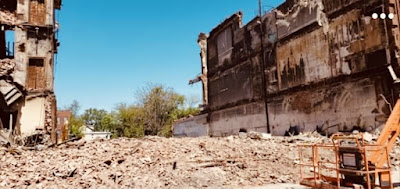 |
| Joseph Fagan photo |
The cornerstone was laid June 24, 1886, and the temple was dedicated November 16, 1887, according to One Hundred Years of Masonry in the Oranges, 1809-1909 by Bro. G. Howlett Davis. (Imagine a time when Freemasons authored books about their lodges and the local Masonic scene!) The temple was home to both Union Lodge 11 and Corinthian Lodge 57.
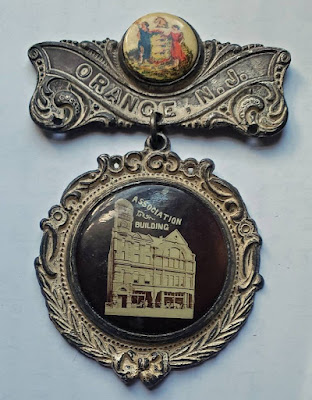 |
Joseph Fagan photo Commemorative medalfrom the dedication ceremony. |
I won’t delve deeply into the details, but eventually—possibly the 1970s—these lodges, joined by Germania Lodge 128 in Newark, would amalgamate and form Germania-Corinthian-Union Lodge 11, and would acquire a former National Grange hall a few towns away in Livingston. About twenty years ago, this lodge merged with Livingston-West Orange Lodge 287, which was located a few miles to the west, and they carry on today as Livingston Lodge 11.
 |
| Historical photo courtesy Joseph Fagan |
Corinthian 57 was set to labor Under Dispensation in 1861 at a time the Masonic Order in New Jersey was flourishing. Germania Lodge 128 was given its charter in 1872, a German-language lodge that had spun off Diogenes 22 in Newark.
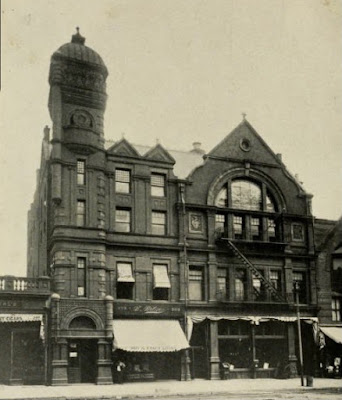 |
| When the Masonic Hall opened, the post office occupied the ground floor. |
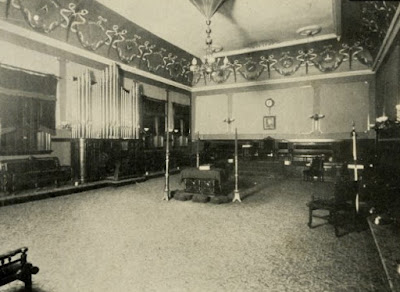 |
| The lodge room in the new building. |
 |
| At the cornerstone ceremony in 1886. |
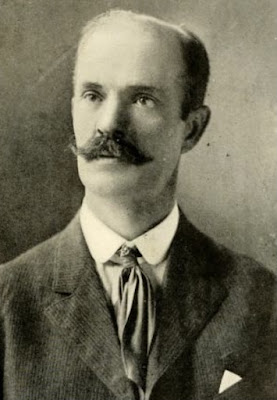 |
| Bro. G. Howlett Davis was raised in Union Lodge 11 on May 28, 1903. |






























































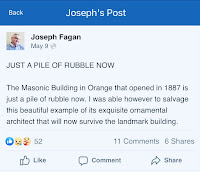
No comments:
Post a Comment